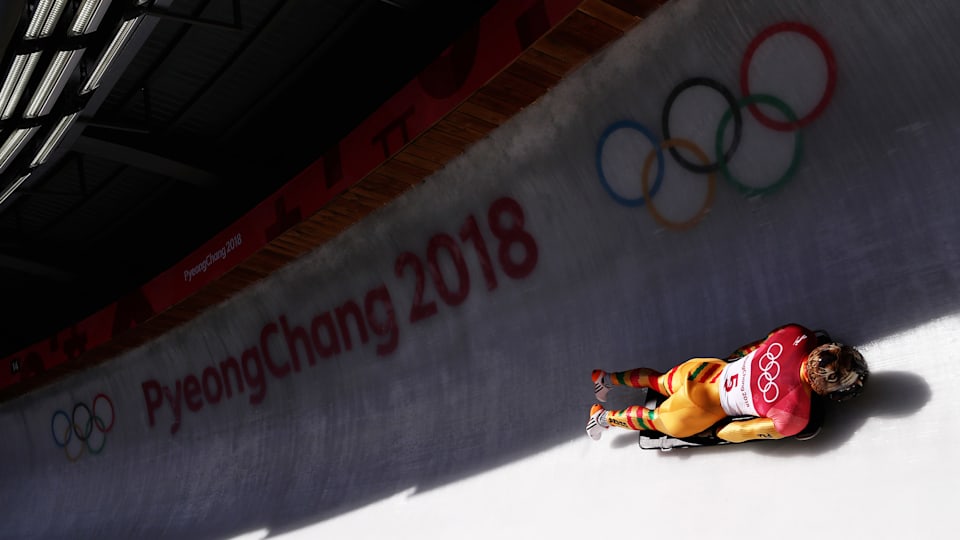
From the impromptu dance moves and the distinctive helmet design – portraying a rabbit outrunning a lion, a metaphor for his own battles against adversity – to the infectious enthusiasm and heart-warming backstory, the public couldn’t get enough of the affable 32-year-old skeleton competitor from Ghana, a West African country where there is no snow and no ice.
“My aim was three things,” explains Frimpong. “To break down barriers and show that people from warm countries can do winter sport; second, it was to write history for my country, which was to inspire the kids to come out of their comfort zone and dare to dream. And the third thing was to gain experience [in the skeleton]. I did exactly what my goal was.”
For the record, Frimpong finished last in the men’s skeleton qualifier. Yet the man who has been practising this fast, technical sport for less than two years was only a handful of seconds off the pace, something of which he is justifiably proud.
“I am an athlete, and you always want to be competitive, but you also have to be realistic. What I wanted to do was show people I could slide,” says the Ghanaian.
“It’s fun to hear other athletes say, ‘Man, you’ve been doing this for a year and a half? You’re way better than I was when I had been doing it for a year and a half!’
People are inspired, you know? I came last in the competition, but nobody sees it like that. You’ve got people in Korea, in the Netherlands, in Africa; I won the hearts of the people. The Koreans were amazing, cheering me on like I was the gold medallist. Akwasi Frimpong Ghana - Akwasi Frimpong Ghana
“Obviously I wasn’t going to be competitive for a medal, my goal was always the 2022 Olympics.”
Aiming for Beijing
With an extra four years of experience on the skeleton, Frimpong firmly believes he can be a medal contender at the next Olympic Winter Games in Beijing.
“I was competing against guys [in PyeongChang] who have done the sport for at least six years, and people who have been doing the sport for 12 to 18 years,” he said.
“It’s a sport of experience and I’m just grateful that I gained that experience. The burning desire to win a medal in 2022 is even greater now.
“It’s not going to be easy, but hey, it took me 15 years to make it to the Olympics the first time. I’m a guy who never gives up.”
Third time lucky
As a teenager living in the Netherlands, where Frimpong became the Dutch 200m junior sprinting champion over 200 metres, sparking ambitions of representing his adopted country in athletics at the Olympic Games.
Having missed selection for the Olympic team by mere tenths of a second, he set his sights on the bobsleigh, but just missed on qualification for Sochi 2014. Representing the country of his birth in skeleton was a last shot at achieving his dream.
Unexpected fame
“My life has totally changed,” says Frimpong. “People knew a little bit who I was. A few people had written stories. Now, everywhere I go I am recognised. I never thought I would be recognised like a movie star. In a humble way, it’s just crazy everywhere I go right now.”
There was also close scrutiny when he finally hit the skeleton track. “I wasn’t scared to compete,” he adds. “I felt ready to show people I could slide, I could make it down the hill, which I did. But there’s definitely pressure.
“I had a good coach and we came to do what we had to do. I had to keep my equipment as simple as possible. I wasn’t able to take much risk with it. We tried it one time in training and it did not go so well. I had a little crash because we changed some things. We had to remember that the basics were what was important to me.”
“I became the unlikely Olympian, and everyone was suddenly [chanting] “Kwa-si Frim-pong, Kwa-si Frim-pong”, so there was a bit of pressure whereby the whole world was watching me and I wasn’t just [representing] Ghana any more.”
